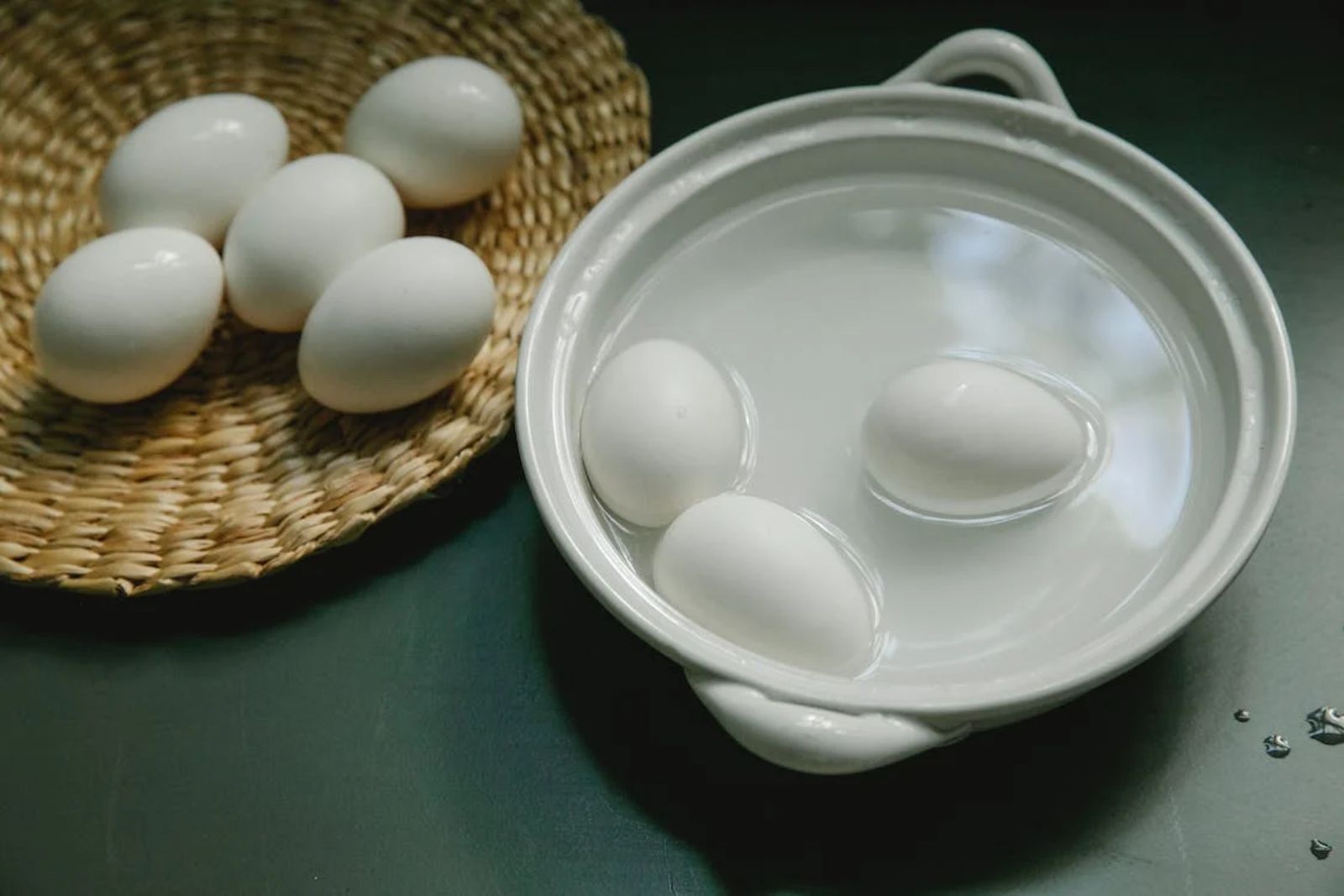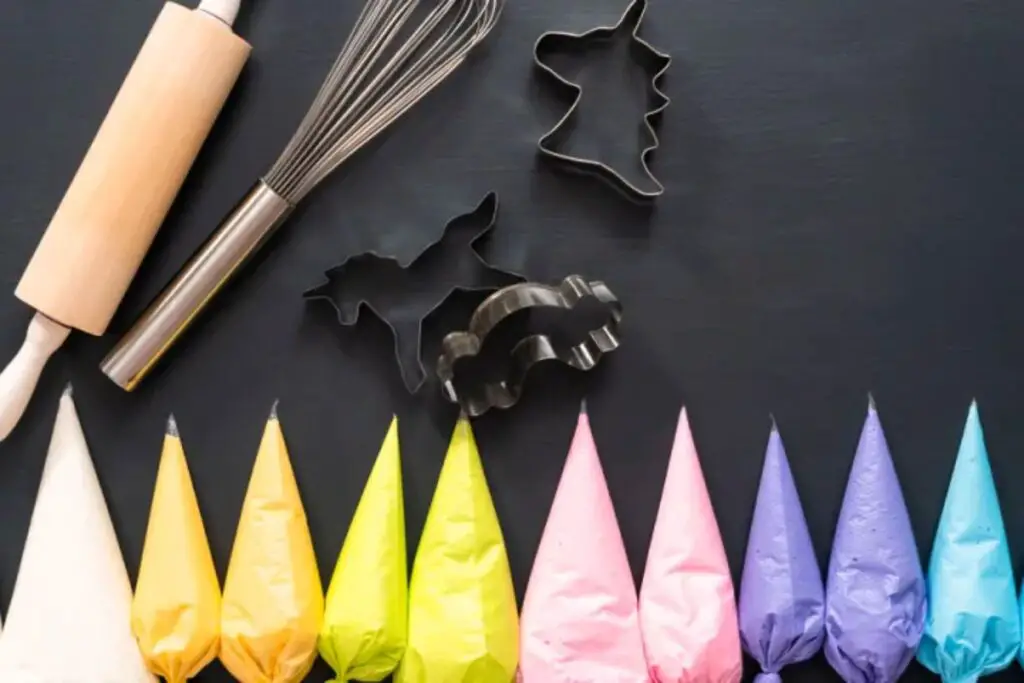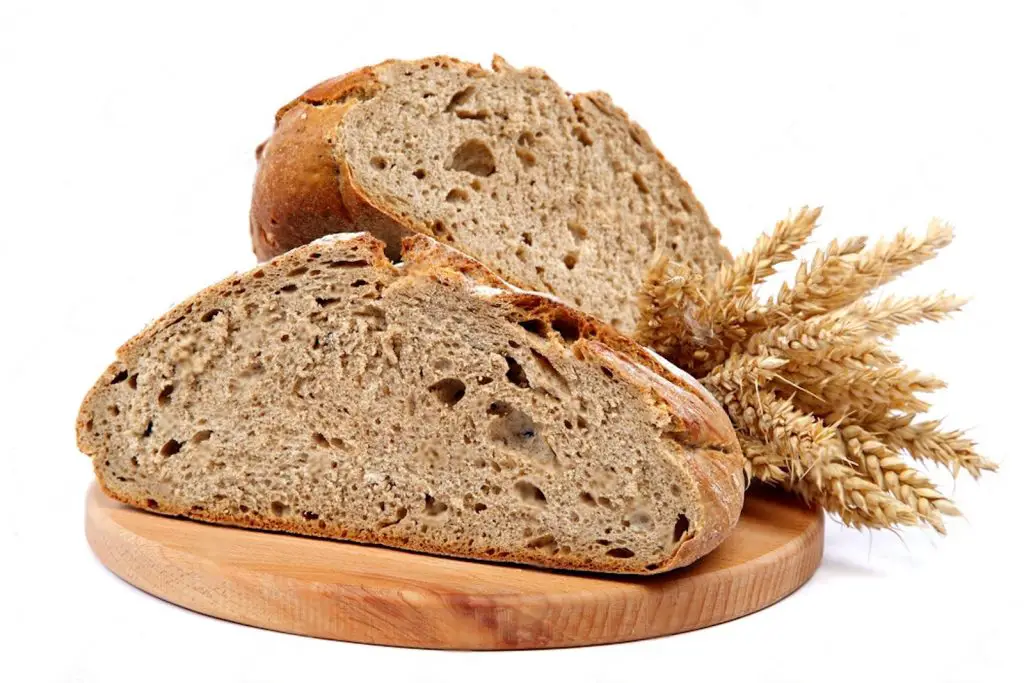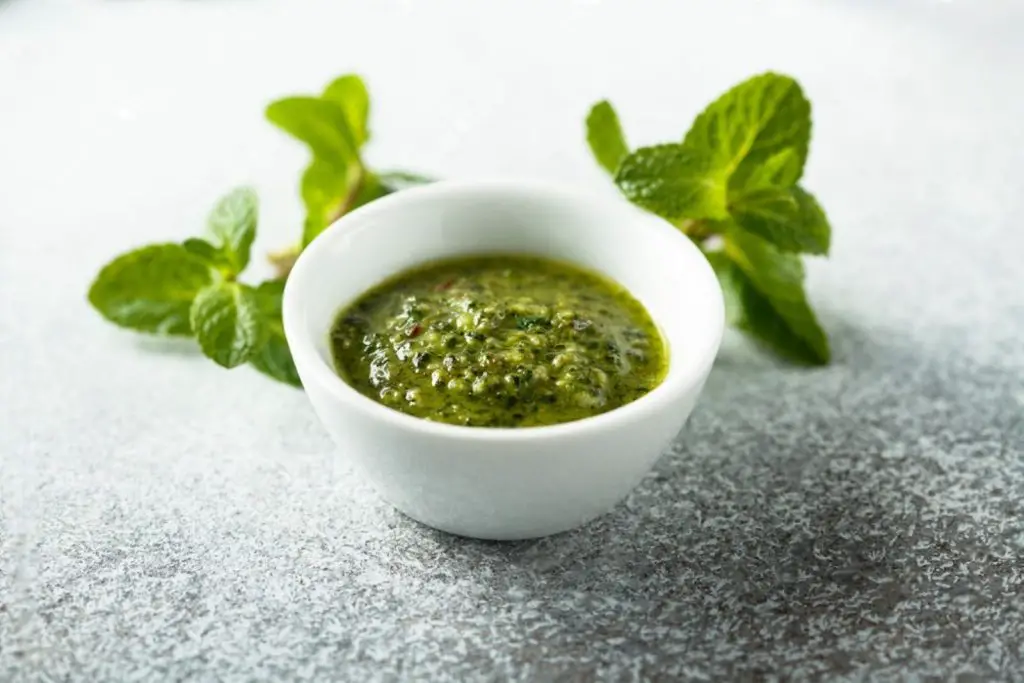
Welcome to the world of hard-boiled eggs, a versatile culinary staple that has earned its rightful place in breakfast spreads, salads, sandwiches, and beyond. With their firm whites and creamy yolks, hard-boiled eggs offer a protein-packed snack or ingredient that can be enjoyed in various delicious ways. Whether you prefer them as part of a classic egg salad or simply enjoy peeling and seasoning them for a quick on-the-go bite, hard-boiled eggs provide a convenient and nutritious option for any mealtime. However, if you find yourself with an excess of hard-boiled eggs or wish to have them readily available for future recipes, freezing these culinary gems is a fantastic way to extend their shelf life while preserving their taste and texture. In this guide, we’ll delve into the art of freezing hard-boiled eggs, sharing expert tips and techniques to ensure that you always have a stash of these versatile eggs on hand whenever inspiration strikes.
Here are the simple steps to freeze hard-boiled eggs:
Step 1: Prepare the Hard-Boiled Eggs
When it comes to freezing hard-boiled eggs, the first step is to ensure that you have a batch of perfectly cooked eggs. Here are steps on how to achieve just that:
- Gather your eggs: Select the desired number of eggs you wish to freeze. It’s best to use eggs that are not too fresh, as slightly older eggs tend to peel more easily.
- Place the eggs in a saucepan: Arrange the eggs in a single layer at the bottom of a saucepan. Ensure that they have enough space and are not overcrowded.
- Add water: Pour enough water into the saucepan to completely cover the eggs. The water level should be about an inch above the eggs.
- Heat the water: Set the saucepan on the stovetop and turn the heat to medium. Allow the water to come to a gentle boil.
- Reduce the heat and simmer: Once the water reaches a boil, reduce the heat to low. Let the eggs simmer in the hot water for about 9-12 minutes. Adjust the timing according to your preference for softer or firmer yolks.
- Ice bath: While cooking eggs, prepare a bowl filled with cold water and ice cubes. Once the eggs are done, immediately remove them from the heat and transfer them to the ice bath. This rapid cooling process helps stop the cooking and makes the eggs easier to peel.
By going through those steps, you can ensure that your hard-boiled eggs are cooked to perfection, with creamy yolks and fully set whites. The ice bath not only halts the cooking process but also prevents the unappetizing greenish-gray ring from forming around the yolks, often caused by overcooking.
Can I start hard-boiled eggs in hot or cold water?
When preparing hard-boiled eggs, it is generally recommended to start with cold water. Place the eggs in a saucepan and cover them with cold water, ensuring that the water level is about an inch above the eggs. Gradually heat the water over medium heat until it reaches a gentle boil. Starting with cold water helps to prevent the eggs from cracking due to sudden temperature changes.
Step 2: Peel the Eggs
After the hard-boiled eggs have cooled down in the ice bath, it’s time to peel them. Follow these steps for a smooth and successful peeling process:
- Tap the eggs: Take one egg at a time and gently tap it on a hard surface, such as a countertop or cutting board. The goal is to create small cracks all over the egg’s shell. Be cautious not to apply too much force, as you don’t want to crush the egg inside.
- Start peeling: Once you’ve tapped the egg, begin peeling from the wider end, where the air pocket is typically located. Gently roll the egg on the surface to loosen the shell.
- Remove the shell: Carefully peel off the shell, ensuring that you remove the thin membrane along with it. The membrane can sometimes stick to the egg, so be gentle and patient while peeling to avoid tearing the egg white.
- Use water for assistance: If you encounter difficulties while peeling or notice small shell fragments clinging to the egg, you can peel the eggs under running water. Hold the egg under a stream of cool water while peeling, allowing the water to wash away any stubborn shell pieces.
By tapping, rolling, and peeling the eggs carefully, you’ll be able to remove the shell without damaging the egg inside. Peeling the eggs under running water can make the process easier and help ensure that the eggs are free from any residual shell fragments.
What happens when I freeze hard-boiled eggs in the shell?
When hard-boiled eggs are frozen in the shell, the moisture inside expands and causes the shell to crack. This occurs due to the water turning into ice and expanding in volume. Freezing hard-boiled eggs in the shell is not recommended as it can result in a compromised texture, potential bacterial contamination, and loss of flavor.
Step 3: Slice or Leave Whole
After peeling the hard-boiled eggs, you have the flexibility to decide whether you want to freeze them whole or slice them before freezing. Consider the following options:
Slicing the eggs
If you envision using the eggs in salads, sandwiches, or as toppings for various dishes, it can be beneficial to slice them before freezing. This way, you’ll have pre-sliced eggs ready to add to your recipes without the need to thaw and slice them later on. Use a sharp knife to make even, clean slices, and ensure they are of a thickness that suits your preferences.
Freezing the eggs whole
On the other hand, if you plan to use the eggs for purposes where keeping them whole is more suitable, such as making deviled eggs or using them as standalone snacks, you can freeze them as they are. Place the peeled whole eggs on a tray or plate, making sure they are not touching each other. This will prevent them from freezing together, allowing you to take out individual eggs as needed.
Consider your intended usage when deciding between slicing or leaving the eggs whole. If versatility and convenience are a priority, slicing the eggs beforehand can save you time in the future. However, if you prefer to have the option of using the eggs in different ways, keeping them whole is the way to go.
Step 4: Flash-Freeze
Flash-freezing the hard-boiled eggs is a crucial step to prevent them from sticking together and maintain their individual shape and integrity during the freezing process. Follow these steps to flash-freeze the eggs effectively:
- Prepare a baking sheet or tray: Line a baking sheet or tray with parchment paper. This will prevent the eggs from sticking to the surface and make it easier to remove them once they are frozen.
- Arrange the eggs in a single layer: Place the sliced or whole peeled eggs on the prepared baking sheet or tray in a single layer. Make sure the eggs are not touching each other, allowing space between them. This will ensure that they freeze individually and don’t clump together.
- Place in the freezer: Carefully transfer the tray with the eggs to the freezer, ensuring it sits on a flat surface. Make sure the tray is level to prevent any movement or shifting of the eggs during freezing.
- Allow time to freeze: Leave the eggs in the freezer for about 1-2 hours or until they are completely frozen. The exact freezing time may vary depending on the temperature of your freezer and the size of the eggs. You can check for firmness by gently touching the eggs after the designated time.
Flash-freezing the eggs individually before storing them together prevents them from sticking together in a solid mass. This allows you to easily remove the desired quantity of eggs without having to thaw and separate them. It also helps maintain their shape and prevents any loss of texture or quality.
Step 5: Transfer to a Freezer-Safe Container
Once the hard-boiled eggs have been flash-frozen and are solid, it’s time to transfer them to proper storage containers for long-term freezing. Follow these steps to ensure the eggs remain fresh and protected:
- Remove the tray from the freezer: Take out the tray or plate containing the frozen eggs from the freezer.
- Choose freezer-safe containers: Select airtight freezer-safe containers or resealable freezer bags to store the eggs. These containers should be specifically designed for freezer storage to prevent freezer burn and maintain the quality of the eggs.
- Place the eggs in the containers: Carefully transfer the frozen eggs into the containers, arranging them in a single layer if possible. If using resealable freezer bags, lay the eggs flat to prevent them from sticking together.
- Label the containers: To keep track of the freshness of the eggs, label each container with the current date. This way, you’ll have a reference for how long the eggs have been frozen.
- Seal tightly: Ensure that the containers are sealed tightly to prevent air and moisture from entering. This will help maintain the texture and flavor of the eggs throughout the freezing process.
By storing the hard-boiled eggs in proper freezer-safe containers, you create a barrier against freezer burn, which can adversely affect the taste and texture of the eggs. The airtight seal also prevents the absorption of unwanted odors from other items in the freezer.
Remember to place the labeled containers in a designated section of your freezer for easy retrieval and organization. Properly stored, the frozen hard-boiled eggs can maintain their quality for an extended period.
Step 6: Thaw the Frozen Hard Boiled Eggs
When the time comes to use your frozen hard-boiled eggs, follow these steps to thaw them properly before incorporating them into your favorite recipes:
- Retrieve the desired quantity: Take out the number of frozen hard-boiled eggs you need from the freezer. Close the freezer immediately to maintain the temperature of the remaining eggs.
- Thawing in the refrigerator: The most convenient and safest method of thawing frozen eggs is to transfer them to the refrigerator. Place the eggs in a container or on a plate and let them thaw overnight. This gradual thawing process ensures that the eggs thaw evenly without any risk of bacterial growth.
- Quick-thawing in cold water: If you’re short on time, you can opt for a quicker thawing method by placing the frozen eggs in a bowl of cold water. Ensure the eggs are in a leak-proof bag or container to prevent water absorption. Change the water every 30 minutes to maintain its cold temperature. The eggs should thaw within an hour or two, depending on their size.
- Check for complete thawing: Once the eggs have thawed, gently press on them to ensure they are no longer frozen. They should feel soft and pliable. Avoid using hot water or a microwave for thawing, as this can affect the texture and quality of the eggs.
- Enjoy in various dishes: Once thawed, the hard-boiled eggs are ready to be used in your favorite dishes. You can incorporate them into salads, sandwiches, wraps, or enjoy them as a protein-packed snack. They can also be sliced, mashed, or chopped for use in recipes like deviled eggs or egg salad.
By thawing the frozen hard-boiled eggs properly, you can enjoy their versatility and incorporate them into a wide range of dishes whenever the need arises.
Other related questions
How long can hard boiled eggs last in the freezer?
Hard-boiled eggs can last in the freezer for up to three months. Freezing helps preserve their quality and extend their shelf life. However, it is recommended to consume them within this timeframe for the best taste and texture.
Can you refreeze hard boiled eggs?
It is generally not recommended to refreeze hard-boiled eggs once they have been thawed. Refreezing can negatively impact their texture, flavor, and overall quality. It is best to use or consume the eggs after the initial thawing and avoid refreezing them to maintain their desirable attributes.
How do I know if the hard boiled eggs have gone bad after being frozen?
After being frozen, hard-boiled eggs can develop signs of spoilage that indicate they have gone bad. Look for visual changes such as an off-putting odor, mold growth, or discoloration of the egg whites or yolks. Additionally, if the eggs have an unusual texture, such as being slimy or rubbery, it is a clear indication of spoilage. When in doubt, it is best to discard any frozen hard-boiled eggs that show these signs to ensure food safety.
Can I freeze hard-boiled eggs if they have already been seasoned or flavored?
Yes, you can freeze hard-boiled eggs that have already been seasoned or flavored, but it’s important to note that the texture and taste may be slightly altered after freezing. Seasonings and flavors can become diluted or may not retain their original intensity. To freeze seasoned or flavored hard-boiled eggs, ensure they are properly cooled, remove the shells, and store them in an airtight container or freezer bag.








